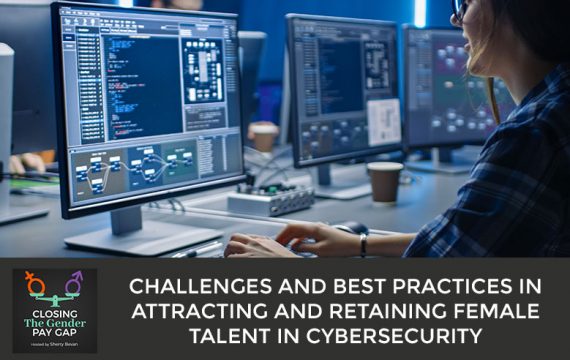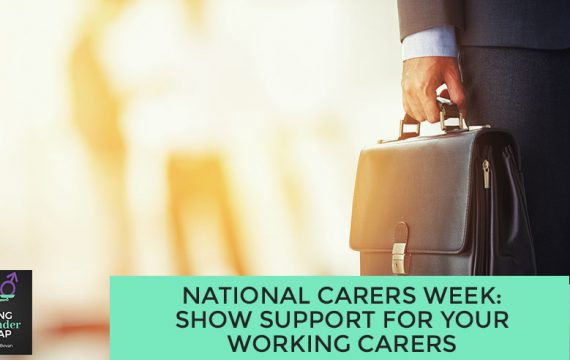The cybersecurity career path appeals to women because it is purpose-driven. But most of technological innovation is driven by profit. Dr. Jacqui Taylor believes that the best of both worlds can be combined in what she calls a profit-for-purpose model. As the co-founder and CEO of Flying Binary, Jacqui is on a mission to create an inclusive technological future for everyone, and she believes the profit-for-purpose is the way to do it. In this conversation with Sherry, she explains how she made her way to a cybersecurity career and the massive role she’s now playing in detecting and fighting bad actors, including in what’s widely-considered to be the world’s first cyber-warfare history, which is currently underway in Ukraine. She also explains why the cybersecurity space is especially conducive to inclusion initiatives and how women and other underrepresented sectors can start their career path in the industry.
—
Listen to the podcast here
National Cybersecurity Awareness Month Special: The Profit For Purpose Mission In Cybersecurity With Dr. Jacqui Taylor Of Flying Binary
In this mini-series to celebrate National Cyber Security Awareness Month, I’m talking to a range of women about their careers in cybersecurity. I’m delighted to be talking to Dr. Jacqui Taylor. A very warm welcome to you, Jacqui. Thank you so much for joining me.
It’s great to be here with you, Sherry.
I feel very honored to have Jacqui as a guest and there’s so much I could say about her. She’s been voted one of the most influential women in UK technology. One of the most inspiring women in cyber. She’s been awarded an honorary Doctorate of Science and recognition for her international science work. There’s so much I could say.
In 2016, she pivoted her company FlyingBinary to meet the challenges of Web3, metaverse, and the industrial internet of things with spectacular results. Let’s jump right in to find out more about Jacqui’s career journey in the cyber world. Jacqui, I know you’ve been involved in technology in cybersecurity for a long time, but how did you get started?
I was due to take a management role in the UK’s post office and my mother took very serious ill and ultimately died in a few months. My whole career was upended because I had done an internship at a local aerospace engineering company. They came to me and said, “We can support you. We can support the family.” That was helped by the fact that my father was one of the directors, but they saw what I’d done as an intern and were keen to keep me.
I went into that and that was my start in aerospace engineering. It all went swimmingly well until I qualified. My dissertation was at a new jet engine technology to reduce the noise pollution in our cities and the first aircraft off the production were for a Middle East client. As a female engineer, I was not somebody suitable to run that.
My managing director said, “I wonder what will happen if I put an aerospace engineer into the technology department.” Then the answer was nothing because I was horrified by what I found. The long story short was, effectively, that was the beginning of software engineering for the aerospace industry because we needed to put engineering at the core of what we did because otherwise, planes would fall out of the skies, and it wouldn’t be a good thing. That’s a subtle piece that I did in terms of an industry intervention to solve the noise pollution of our aircraft. It’s something that has been a thread throughout my career.
How did you get started specifically in Cybersecurity then?
As a technologist, it’s something I have been interested in because it’s out there. It’s that societal piece. I have been a white hat for some time and I have worked with many people to do many different things. FlyingBinary’s mission is inclusion, leave no one behind. We firmly believe the future’s female and that the GDP growth that an inclusion agenda drives because I have done the assessment for 60% of the world’s GDP, so it’s a very powerful agenda.
Everything we do for the government across the world has a cyber component. We are a cyber essentials company using the national cybersecurity center accreditation, but that wasn’t our focus. Our focus was building technology for Generation Z or until I spoke at Davos in 2019 Generation Alpha and to unlock their talents for the world. We knew that technology could be leveraged and be an enabler and we were building that deep technology.
The websites that we pioneered that I got the honorary Doctorate for was the foundation of our engineering background because my cofounders are electrical engineers. The combination of that science, pioneering science and the engineering background gave us an offering that hadn’t been seen before and it’s still unique across the industry.
I created the blueprint for Europe. I started my work in 2014 as an independent advisor to Minister Calvin’s office. I had the opportunity to create the blueprint for the future of Europe and for the industrial internet of things. That’s when we are all connected up and humans and robots. The day I did that was a major day in my life. I’d written my second book. I was there to present that work. It was the day that I had to come home to the UK.
I had to be on the last Eurostar train from Brussels and they guaranteed that for me. At 5:00, the doors opened. The men with guns arrived and said, “Which one of you is going to London?” That was the day that Paris was attacked. The reality of it was the technology we’d been building to create that societal intervention was also technology that the criminals didn’t have access to that allowed us to see what they brought to.
I came home on that Eurostar. I did my intervention with the high commissioner of Bangladesh on Saturday in London. We got back on that Eurostar on Sunday. Having pivoted the company to be accounts terrorism company and deploy that technology to safeguard us all against the terrorists, drug traffickers, and people traffickers. The reality of it was we had unlocked the societal piece, but there were those within society that were determined to destroy it.
800 people, 16 companies of what we built up far, down to 200 people, 6 companies that moved in to cancel terrorism agenda. Now up to seven companies because we have added something. That was around changing the way other people looked at technology, which was profit-driven. How do you make money out of this tag? To something that for us was purpose-driven, but it was with profit. It was a profit-for-purpose agenda, and that was the day that began and that caused me to look at everything in the world very differently.
Particularly what cyber was going to mean to us in the future, given the criminal activity that we had uncovered and why that was a key change in our whole industry, and then what we were going to do about it. We have been in that domain ever since. I have been in working in Ukraine since 10th of February, 2022 and we are in our seventh month now and the first ever cyber warfare that the world’s ever known. We will stay here. Our world has gotten more dangerous since that day on the 13th of November, 2015. FlyingBinary’s mission is inclusion but in a cyber safe way.
It’s very interesting that you mention this societal mission, this profit with purpose, because for lots of women, that appeals having a career with purpose. It seems to me that cyber security fits that brief. If you are working in cyber security, in very simplistic terms, it’s the goodies versus the baddies. If you are on the goodies side, then it fits that career with purpose that a lot of women want. I wondered how you feel about that.
It’s very interesting. It’s why I say the future’s female because we are able to look in a wider perspective as females. I want to stress one thing. I might be an engineer and I can spin you up some tech of whatever you need out of the top fifteen influential women in tech. Both Poppy and I can still do that. The rest of the women are guarding that agenda and are moving it forward.
It’s not a technical agenda cyber. It’s a multifaceted industry. Since the 13th of November of 2015, we have changed the way we look at it. When I stood on stage at Davos in January 2019, I articulated that all we needed was one event that we call a Zero-day Exploit in our cyber world. One event that would transform everybody’s view of what our industry was.
At the time, when I was speaking on stage, I was imagining because I knew they were under million children not vaccinated for measles in the US. I was imagining a measles epidemic. That would sweep across America and we would lose our children because we didn’t have a holistic view of what was happening, and that measles, once it’s ripe, as we find in other countries, just sweeps across the country.
I didn’t know that was going to be a Coronavirus. I was using that example because one of my colleagues from NATO in the audience challenged me. It’s so like, “What, Jacqui? What’s this Zero-day you imagine?” That’s what I said. That’s what happened and 1 billion more people came online, which gave us in our industry a new perspective on what cyber looked like.
We could no longer deal with a threat. The threat was there and it was omnipresent, and now we had to look at risk. That was where the delivery of the Empathy Economy technology. Profit-for-purpose is a new business model, but the overarching agenda is the Empathy Economy, which literally takes that original cyber view of saying technology is in the sharing economy. You get a premium model. You get this for free. You got to pay for that.
That has created the leaky bucket that I was talking about at Davos and the Empathy Economy is reimagine technology using deep tech to change the way we look at how we leverage technology. That profit for purpose and I find for many men, it’s not a female agenda, but the fact that what you are doing creates impact. What you do every day, what I do every day and what we all do in our industry is we do the work we do in order to create the world we all want to live in.
We do the work we do in order to create the world we all want to live in.
I’m talking to Sherry now when we are literally talking nuclear war or we are not talking any of that. Let’s say the chief protagonist is talking about that. We are all in our industry working towards a world we want to live in. That profit-for-purpose model has resonated hugely in the sense of that has to be the way technology is leveraged.
It’s not for its own rights. It’s not because it’s geeky. It’s not because it’s technically interesting. It’s all of those things, but what purpose does it have? What does it enable? What can we create with it? That’s where the profit-for-purpose sweet spot is. That’s unusual in our industry. Lots of great debates on it, but the societal approach is the underpinning piece of that, and the fact that we can all create the world we all want to live in. Its impact and purpose-driven.
What I find so fascinating about cybersecurity is when you are talking about Coronavirus, for example, and the way that pandemic spread. What I find quite fascinating about the cybersecurity in industry is that the biggest challenges it’s faced or the biggest is it’s overcome that we don’t hear about them because we’d be too scared if we knew everything that people who are working in information security and cyber security. If we heard everything that you’d tackled and dealt with and shut down. I’m sure we’d all be feeling a bit more anxious and nervous. I find that aspect of it. You are doing something with purpose, but it’s not something you can necessarily go and publicize.
One of the things that we say to our engineers is very much, “You’ll be zero to hero. You’ll be the most famous person that nobody ever knows.” If we are successful at what we do, you won’t hear from us. It’s very interesting. I was running an event about 25 minutes after I’d received the Russian translation about what Vladimir Putin had said. I said to them, “Who’s panicked here?” Everybody said, “No, because we are with you. You are not panicked. We are not panicked.”

The thing about it is we are susceptible to what we hear. We don’t question the providence of what we hear very much because in the sharing economy. It’s a free resource. I always say the thing about that is that anything that’s free is an opinion and opinion is the lowest form of knowledge, but we consume that on a daily basis. Most of us.
The reality of it is because of that, we are affected by it. That’s because, from a neuroscience point of view, that’s how we work. Our input determines our experience and, therefore, what we create. It’s deliberate that we don’t say that. Not because we are trying to keep secrets from you, but because we want to make sure everybody else can get on with what only they can do.
We do this as cyber specialists, but then we know that enables you all to do what you are doing. For those that join our industry, that’s one of the biggest motivators. We unlock a society that allows people to imagine a completely new future. We are quite happy with that agenda because, in our own world, we are not in it for the ego.
That for-profit approach to this is where perhaps that ego piece has come in. Once you attach purpose to it, then effectively, we are all contributing the key differences. It’s competitive in the sharing economy. In the Empathy Economy, it’s collaborative. We all contribute and between us, we envisage and we build that new future.
To be honest with you, it’s a fascinating place to be and there’s absolutely room for everybody. I’m visually disabled. I’m also neuro-diverse. The world’s a hostile place to me before I start, but then that’s the perfect place to me to be in a hostile world. Dealing with other people who don’t have my learning differences and don’t have my approach in the world. They can’t outrun me because I don’t think the way they do.
I think that’s the thing. Everybody has talents. There’s a place for them in our industry. The first ever cyber warfare since 24th February 2022 means that those opportunities got bigger and interesting because so many people are now saying, “Even if I’m not in the industry, I need to take account of that.” I have got something to give to Sherry as a download because you’ve met me by Sherry. I will give you a download of what we have done in the World Economic Forum. I will tell you about being cyber safe and even if you don’t join our industry, how we are looking after you and also how to keep your home safe. What’s the most attacked device in your home and it’s not what you think?
There is a place for everybody’s talents in the cybersecurity space.
Thank you so much, Jacqui. That’s much appreciated. There is so much that we could talk about in cyber security. It’s one of those all-pervasive topics. It’s everywhere, isn’t it? Cybersecurity now in the same way as technology is everywhere now. We were talking earlier, before we started, how manufacturing companies, for example, are so much more technology-driven than they were decades ago. What do you see as being the real opportunities for people joining the sector, but in particular for women joining the sector is what I’m most interested in?
As an industry, certainly in the UK, we have repositioned during the pandemic because so many people came to join the efforts of what we were doing and we were given advice and were bringing people into our world that caused us to think again about career paths. We are looking for something that we are always going to use technology. That’s only going to be on the increase, but how do we use that inclusively? We need to perhaps take the biases of what we do now and make it a more inclusive agenda.
The thing that I love about it, the young people, I was advising a young lady who’s getting ready to do internships on this. She was saying, “How did you choose?” I said, “Don’t choose. Just start because it’s all laid out for us as women.” As we are purpose-driven and because we have a more holistic view of the world. I would argue more of a societal view because of the roles that we play.
The hardest thing is how to choose, and I always say, “Just start. Just pick the piece.” Perhaps aligns with what you are doing now, and then take it from there. The one thing that’s perhaps different about our cyber world that perhaps you wouldn’t find in any other career path is non-ecstatic. The criminals never tell us what they are going to do tomorrow. What we have to do tomorrow is always different.
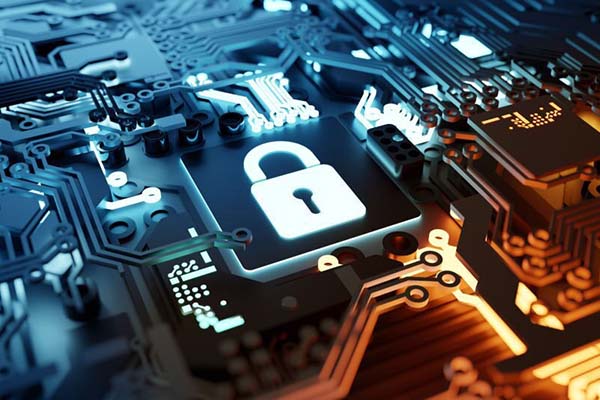
For that, that means you make your own career pathway. You pretty much can choose and tomorrow is always going to be more interesting than today. Every time we shut something down, understand what they are using, make it inaccessible, they will find something else. Then that means we are the real problem solvers to say, “Now I’m going to evolve what I do.”
The fact that there are no days the same means that any part you fancy doing has a role for you, whether it’s within our sector directly like in FlyingBinary or within like we were talking about manufacturing. The cyber piece is because we move to the industrial internet of things where everything’s connected. The cyber response becomes very different.
There’s unlikely several years from now that anybody reading this won’t be in some way involved. Whether you are in the midst of what we are doing and helping pioneer the next steps, that’s a choice. If you wanted to tell people about what we are thinking about and you wanted to share what’s going forward, then this show is great because effectively, you can share this show and say, “It’s going to be all of us, so do we want to know more?”
We are curious as females. We love the idea what’s that about. I want to understand that a bit better and it’s not scary because everything we all do makes the world a safer place. That’s why I turned that on its head and was interested to hear the pioneers I was talking to. We are not scared because you are here and you are quite calm.
Given the news we have had, I’m quite calm because I know that as a group, community, or as a collaborative force, we won’t be outsmarted. All of you reading may welcome to join us and enhance that purpose. I’m so confident it will be where I am and how exciting that we can design the world we want to live in because the technology allows us to do that, and the cyber response is a wrapper around it all.
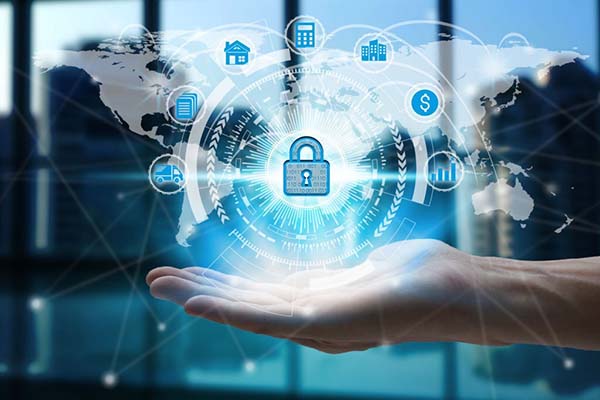
I love that expression. Don’t choose. Just start. That’s perfect for anybody trying to break into the technology or into the cyber security sector. Into any sector that you are trying to break into, just start because then paths will open up for you. Getting started is something I often say to people. Just do it. Just get started. Don’t dither. It’s never too soon. Never too late. Before we finish, Jacqui, I love talking to you and find it fascinating, but what’s your top tip for anybody who wants to know more about cyber security?
There are lots of resources out there, but it’s the people. You’ve got other cyber specialists. I count myself and that around this show. Find out more about what we are all doing. You’ve got, however many people you’ve got in this series. You’ve got immediate connections. We are all very open to talking about what we do. We put resources out. I predominantly put cyber resources out on LinkedIn because that’s where my community of businesses look to consume that, but we are all very approachable. We are all of us quite enthusiastic about what we do and why creating impact with the work we do is so rewarding.
Ping us, interact on a post, ask some questions because we know that effectively, it’s all of our responses that collective. The one thing we can guarantee is community defeats terrorists, drug traffickers, and people traffickers. Being part of that community, connecting with us all, asking questions, and reading the rest of the talks on this series. You are part of us because you are reading this and then you are part of the change we will make across the world. That’s my top tip. We are very approachable and very enthusiastic and just ask.
Community defeats terrorists, drugs traffickers, and people traffickers. And so being part of the community, connecting with cybersecurity professionals, asking questions, and listening to talks makes you part of the change that cybersecurity makes across the world.
Thank you so much to you, Jacqui. I have enjoyed talking to you about your career and your purpose mission. That is absolutely fascinating. I could go on talking for hours, but we won’t. For those of you who’ve been reading, I hope you’ve enjoyed this episode. More episodes on the show at SherryBevan.co.uk. If it sparked a thought in your mind, please do connect and let’s talk and book an exploratory call with me to give you the opportunity to ask any questions you have about the work I do with cybersecurity companies on attracting, developing, and retaining your female talent. Email me at SherryBevan.co.uk to book your call. Thank you so much, Jacqui, for joining me.
It’s been a real pleasure. Thanks for reading, everybody.
Important Links
- FlyingBinary
- LinkedIn – Dr. Jacqui Taylor
- World Economic Forum – How CyberSafe are you in business and how CyberSafe is your home
- https://Jacqui.online – Empathy Economy
About Dr. Jacqui Taylor
 As #15 Most Influential Woman in UK Technology and 21 Most Inspiring Women in Cyber Dr Jacqui Taylor was awarded an Honorary Doctorate of Science in recognition of her international web science work. One of the 250 Founders of the UK’s Digital Economy, in 2016 she pivoted her company FlyingBinary to meet the challenges of Web 3.0, the Metaverse and the Industrial Internet of Things (IIoT) with spectacular results.
As #15 Most Influential Woman in UK Technology and 21 Most Inspiring Women in Cyber Dr Jacqui Taylor was awarded an Honorary Doctorate of Science in recognition of her international web science work. One of the 250 Founders of the UK’s Digital Economy, in 2016 she pivoted her company FlyingBinary to meet the challenges of Web 3.0, the Metaverse and the Industrial Internet of Things (IIoT) with spectacular results.

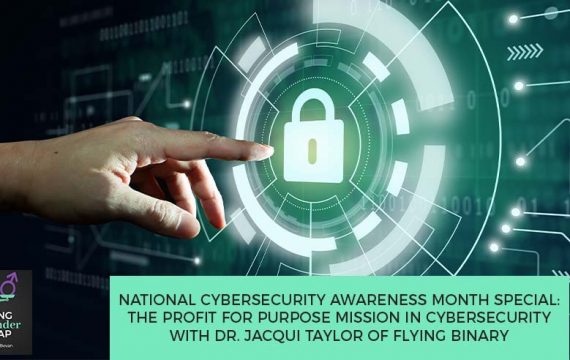
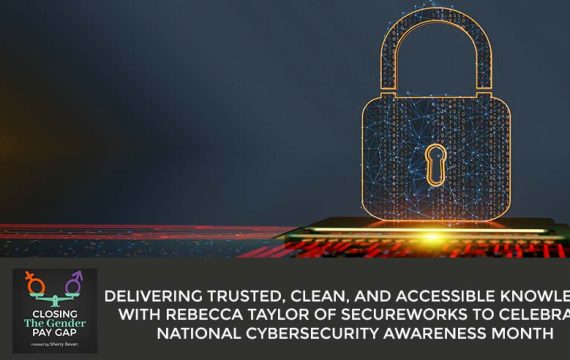


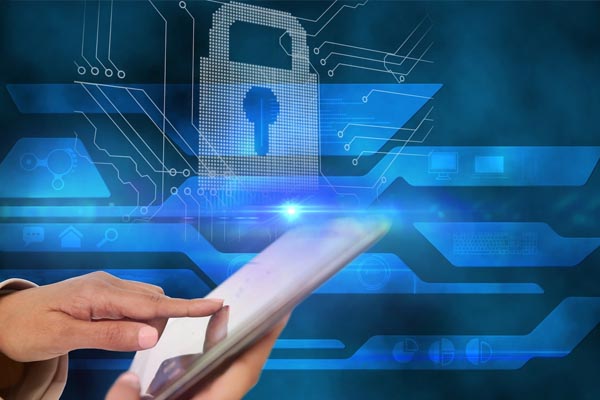
 Rebecca joined Secureworks in 2014, where she developed an immediate passion for cybersecurity. Rebecca quickly expanded her cyber acumen, moving into Secureworks first Threat Intelligence Knowledge Manager role in 2022.
Rebecca joined Secureworks in 2014, where she developed an immediate passion for cybersecurity. Rebecca quickly expanded her cyber acumen, moving into Secureworks first Threat Intelligence Knowledge Manager role in 2022.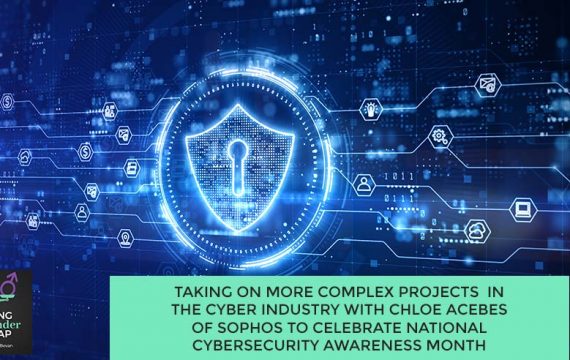



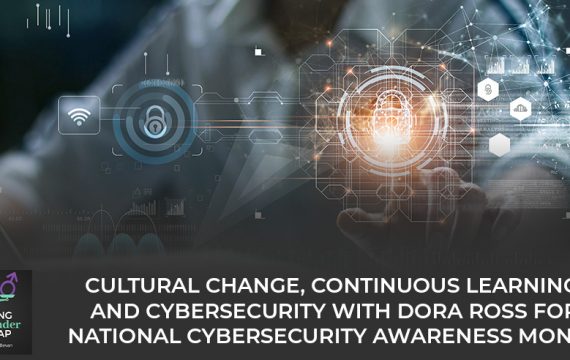


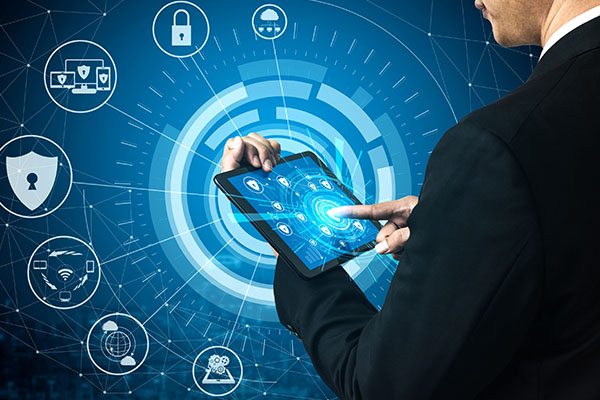
 Dora is a security culture transformation specialist. She works with organisations to define and implement risk-based, human-centred security culture and training strategies enabling positive behavioural change. She has a true passion for information security, demystifying security threats and policies, so that people know what to do in certain situations to better protect themselves and their organisations from cyber threats.
Dora is a security culture transformation specialist. She works with organisations to define and implement risk-based, human-centred security culture and training strategies enabling positive behavioural change. She has a true passion for information security, demystifying security threats and policies, so that people know what to do in certain situations to better protect themselves and their organisations from cyber threats.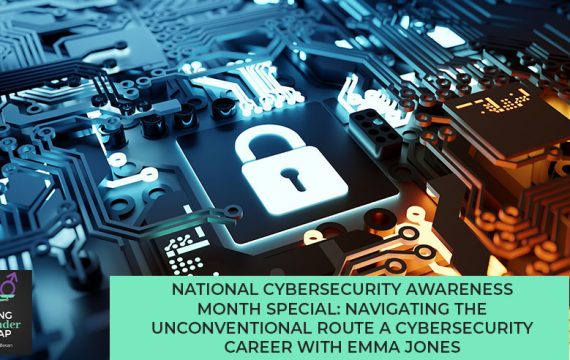



 Emma is a Senior Consultant with CrowdStrike, who works with organisations across the UK, Europe, Middle East and Africa on a range of cybersecurity incident response and readiness initiatives. Alongside her day job, she is passionate about fostering inclusion and championing diversity, and is involved in multiple associated projects.
Emma is a Senior Consultant with CrowdStrike, who works with organisations across the UK, Europe, Middle East and Africa on a range of cybersecurity incident response and readiness initiatives. Alongside her day job, she is passionate about fostering inclusion and championing diversity, and is involved in multiple associated projects.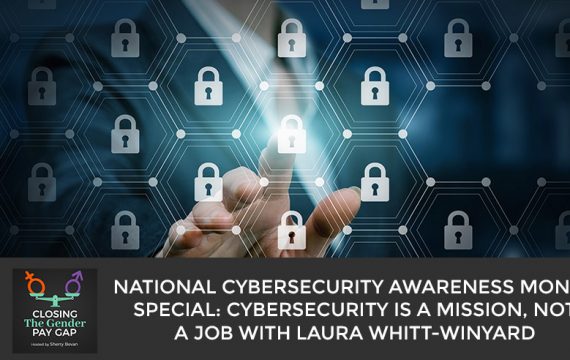

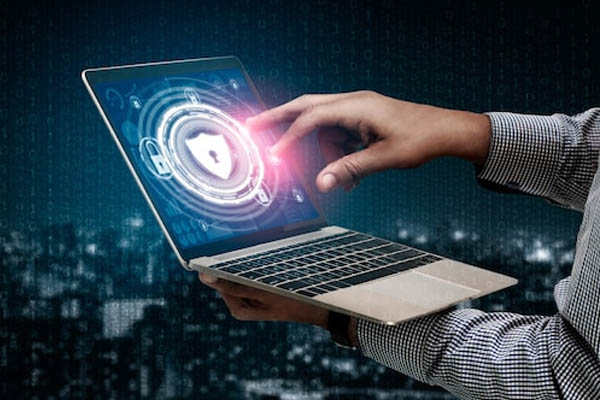


 Laura Whitt-Winyard is a Fellow at the Institute for Critical Infrastructure Technology and an International Advisory Board Member and Women in Technology board member at HMG Strategy. Previously, she was the CISO of Malwarebytes, Global CISO for DLL Group, Director of Security for Billtrust, and held senior leadership positions in security at Comcast and Bloomberg, LP.
Laura Whitt-Winyard is a Fellow at the Institute for Critical Infrastructure Technology and an International Advisory Board Member and Women in Technology board member at HMG Strategy. Previously, she was the CISO of Malwarebytes, Global CISO for DLL Group, Director of Security for Billtrust, and held senior leadership positions in security at Comcast and Bloomberg, LP.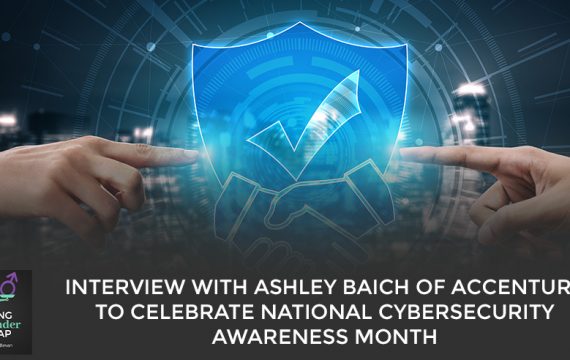


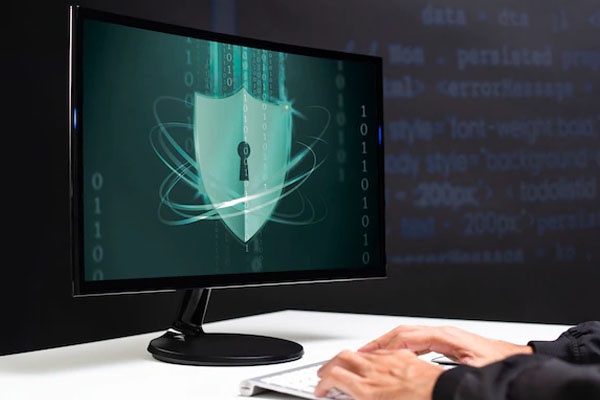
 Ashley is a security consultant whose work is focused on proactively improving organization’s resiliency to cyber threats and advising organizations through cyber crisis’. A readiness and crisis management consultant at Accenture in their Cyber Investigation, Forensics, and Response (CIFR) practice, she is responsible for helping organization’s flex their crisis response capabilities.
Ashley is a security consultant whose work is focused on proactively improving organization’s resiliency to cyber threats and advising organizations through cyber crisis’. A readiness and crisis management consultant at Accenture in their Cyber Investigation, Forensics, and Response (CIFR) practice, she is responsible for helping organization’s flex their crisis response capabilities.



